Research, Relationships and Reality.
Special Education and Research
On Saturday 14th October I presented how I have used research in behaviour support at the #SNIPCC conference at Canterbury Christ Church University. I have always tried to implement research led and data-driven strategies in my practice.
Download the presentation slides
I have struggled to link the outcomes from studies (and training) to the reality of the challenges faced within a classroom environment. I truly believe this is because we lose the importance of the human connection from tightly controlled studies.
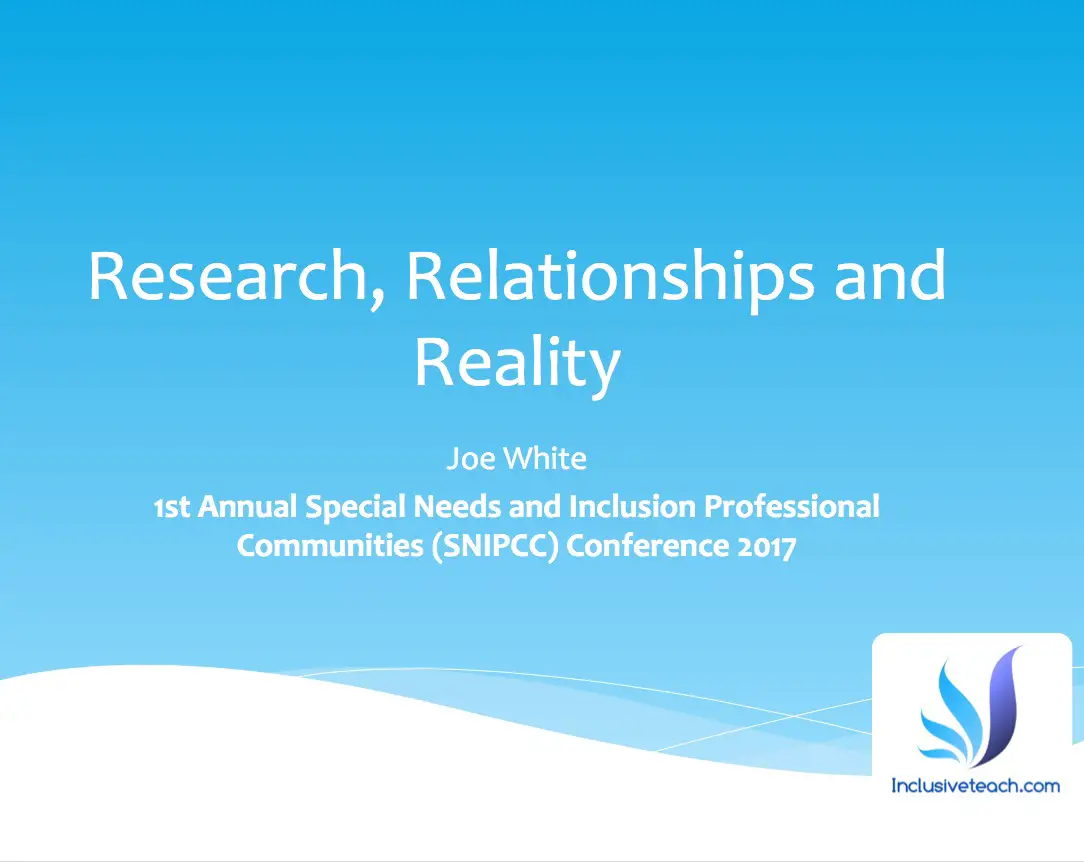
The disconnect between research and reality in special education
I
This post will outline the role relationships play in behaviour support, I will also outline some research led practices I have used. Before I
Fortunately, I have listened to and discuss elements of my practice with Autistic academics and practitioners. This has
Challenging behaviour?
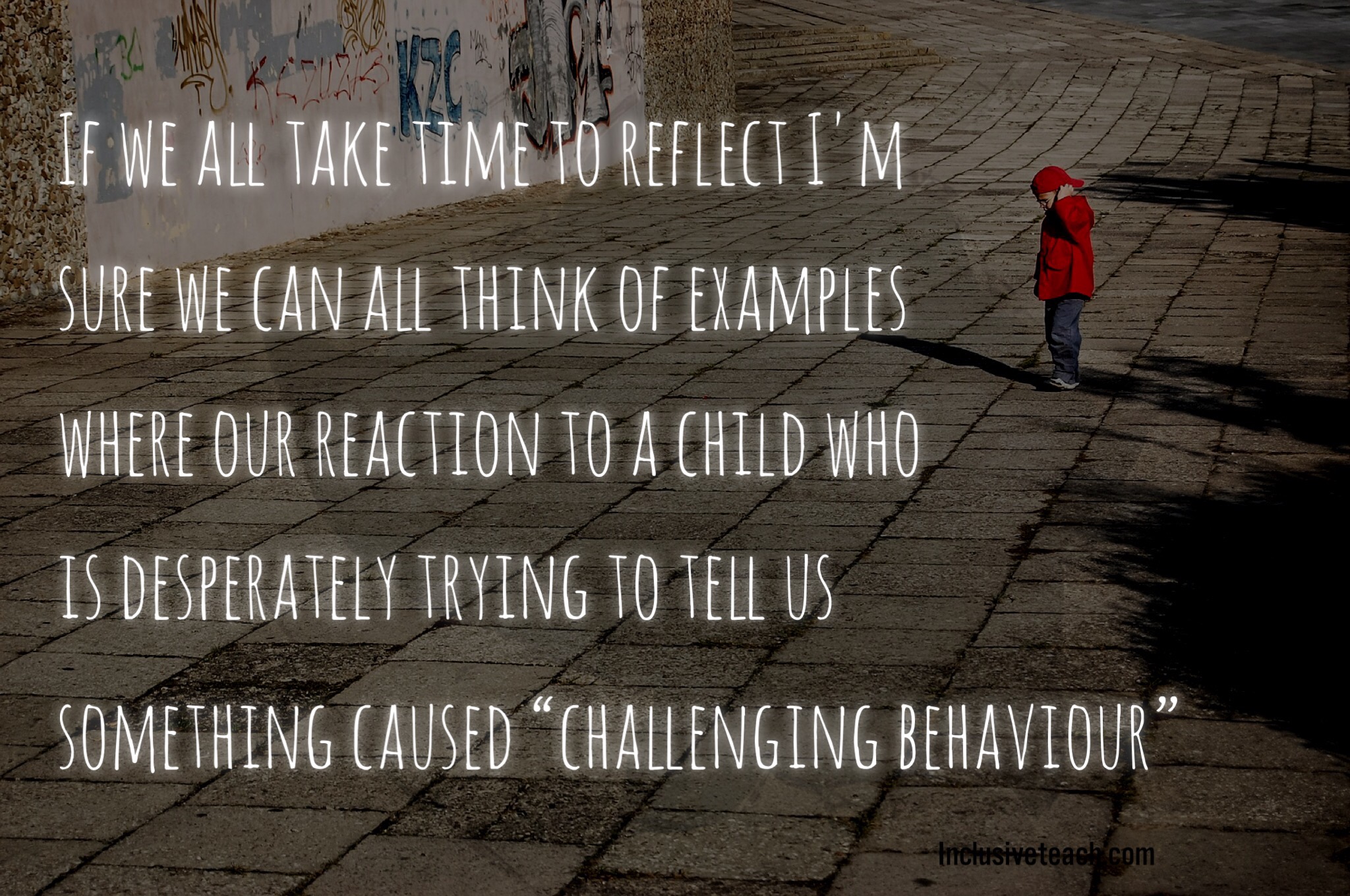
First
Yet every facet of their day
Imagine how you would feel if you just wanted some time alone, you don’t communicate the same as those around you, and they have yet to learn your language so logically you push people away. This just results in more people appearing. Sometimes you
Actions vs Behaviour
I try to use the word “action” rather than “behaviour” following a discussion with Damian Milton. Using behaviour has negative connotations and actually what we often mean is a learned response to interactions or an attempt to communicate.
School culture is essential here, are you as a teacher supported when things go wrong? Are you given the training and skills you need to in turn support the students who need you the most? If you are not and still go out of your way to achieve this yourself you are a saint and need to drive the change into a school that deserves you. You should at a minimum have the power to control the culture of your classroom.
We have a lot of power and control over those we teach. The balance is always against the children we work with.
The unhelpful SEN Deficit model.
If we as teachers follow this deficit model approach to Autism and indeed all students with a diagnosis of SEN then I think we just end up looking for problems and focusing on the “Challenging Behaviour”. The first step we need to take is to find our the strengths of the children we work with. The school I work in supports children who have usually had their previous placements fail. When a child is referred to us it is rare for any conversation to start with what they can do, what they want to achieve and what their hopes or dreams are. To be successful with a child you have to display relentless positivity – from the start.
The training I lead is a Positive Behaviour Support model derived from applied behaviour analysis (ABA) and more recently the work of Gary
It is rare to see pure ABA practiced in the UK but we use elements throughout the education and care system. Often and increasingly controversially people present ABA as a treatment for Autism. I would recommend reading around this discussion as it will shape the way we approach education and services for Autistic people
Data Driven or Data versus “Anecdata “
I cannot recall where I heard the term Anecdata but it perfectly sums up what many of us have to rely on. Before I started trying to find out more about PBS and the science behind it I used to sit in meetings telling stories and giving guesses as to what was happening. This really doesn’t cut it when you are talking about the future quality of live for a child. Your input and knowledge of what is going on may make the difference in securing the right support for a family, the right education placement or even how much additional specialist input a child receives. With ever increasing pressure on schools and social care the more confidence we have in what we are saying the more robust our evidence base the better the outcome for the child.
Many special schools will use many of the data collection methods used in ABA to provide us with insights into the actions of our students.
These are “proven” in many studies but
S.T.A.R charts are a common way of analysing the actions of a child. They can help when we want to look at how our response supports learned behaviour and can lead to ways we can support the unlearning of dangerous behaviour. I like the way the S.T.A.R approach acknowledges the complex nature of behaviour, how it can be used for multiple reasons. However I do think it is easy to get it wrong unless we are honest about our part in the interaction that leads to challenging behaviour.
Creating safe spaces for pupils.
What this really means is we can test ideas. If they are trying to escape is it from a peer or adult
Work by Halpern (2014 Not SEN focused) looked at the effects of having little control over the territory we see as ours as having a negative impact on mental health. How many classrooms create spaces for all our students? Is this practicable? Please let me know, an excellent idea for a
All this requires a systematic approach that is not that hard to achieve but takes time, some training and the desire to investigate – and I believe we owe it to our children to do this not immediately label the actions as challenging. It is also important that we learn to differentiate between times a child is so overwhelmed they cannot control their “meltdown” and when they are just having a grump.
Relationships

So what does this mean? Nothing without a good relationship between the child and the support staff. I work with a team of people who are willing to put the time in to get to know the child and interpret their actions so communication skills are taught in a supportive environment. Importantly this takes place in an environment in which the child feels safe – and this takes hard work to create and maintain. The graphic below outlines some key elements we should be building into our schools to make them a better place to be.
I think you need a team around the child of people
Work by Robledo and Donnellan (2016) into supportive relationships suggested that people will test those close to them to ensure they can trust them to act in the persons best interest even when tested to their limits. I have seen this for myself and heard anecdotes about children displaying behaviours towards those they feel closest to. This research helps show
So what can we take away that will help us form strong supportive relationships? This study by Sweeney et al (2014) was set not in schools but in acute hospital wards (comparisons can be drawn, I have been in both) but found that staff who displayed warmth and showed a real interest had a positive impact on the wellbeing of the people they worked with. This is turn showed a reduction in the amount of negative interactions that occurred. Children know when they are liked and who is genuinely interested in them. You cannot be effective in supporting a child without investing time in the relationship.
As you build a relationship, you will find things out, clues,
Reality – Your Own Research is Valid.
Leo Kanner’s original study into Autism in 1943 comprised… 11 people. You can
Even just an anlaysis of your data can provide clues to make life better for the children. This trend I identified relating to temperature and behaviour might look simple and obvious but can lead to real differences for the children we work with.
“Science is the base, humanity is the structure”
The reality is in a school setting you face a hundred pressures a scientific study doesn’t. Differing skill levels, experience levels, backgrounds, expectations of progress evidencing all sorts of things, observations by people that may not share your interpretation of the situation. You must find a way that works for you and your children. Don’t fall down a rabbit pit of research studies – I have about 60 I should have included here. If you take one thing away invest your time building trust with the children. This will deescalate situations more effectively than anything, it will prevent more “challenging behaviour” than you will even realise. Accept some days things just go wrong.
Books worth Reading
Paul Dix – When Adults Change Everything Changes

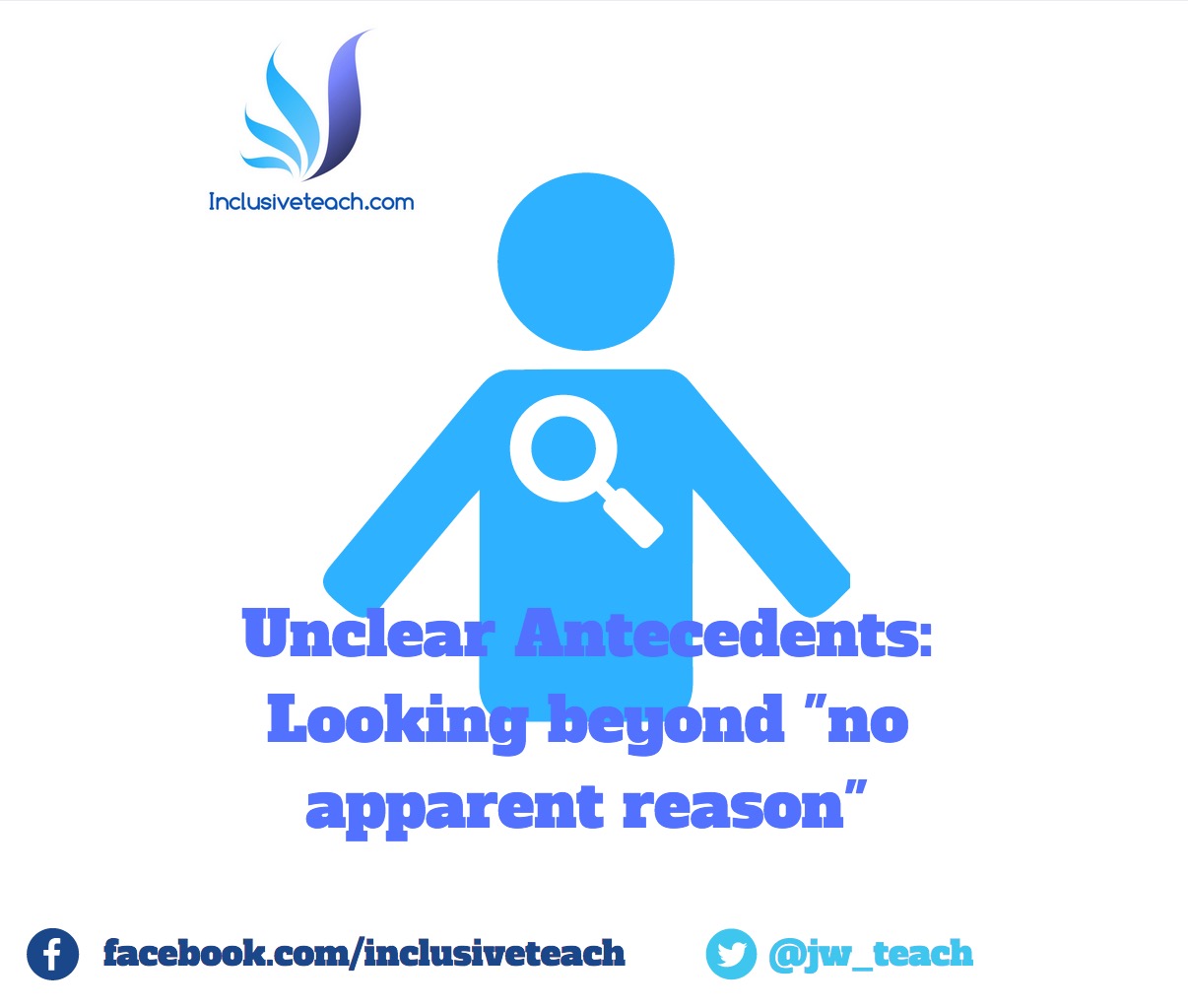
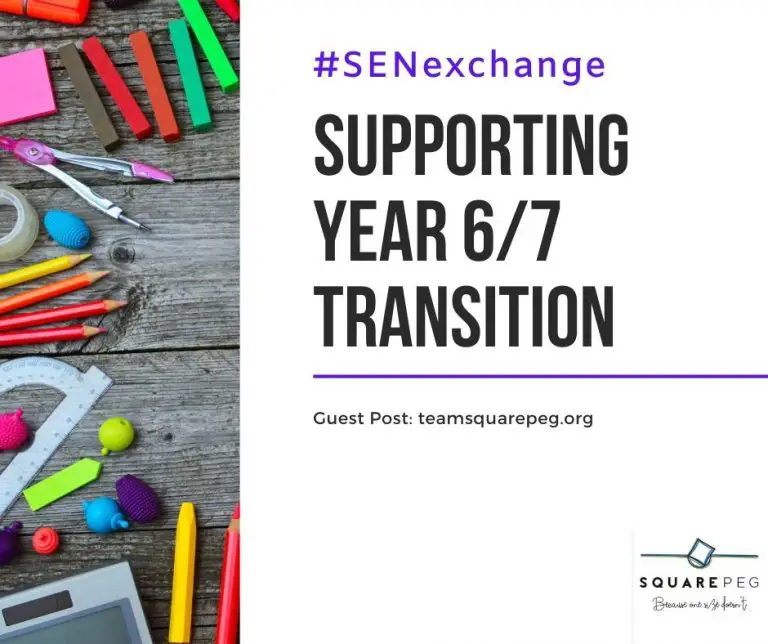

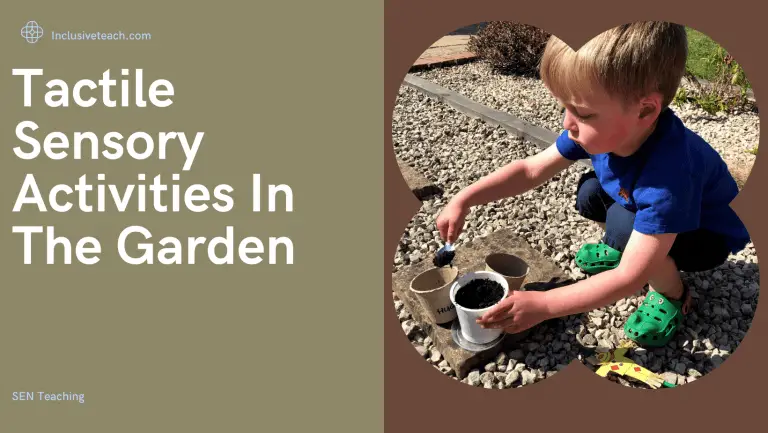

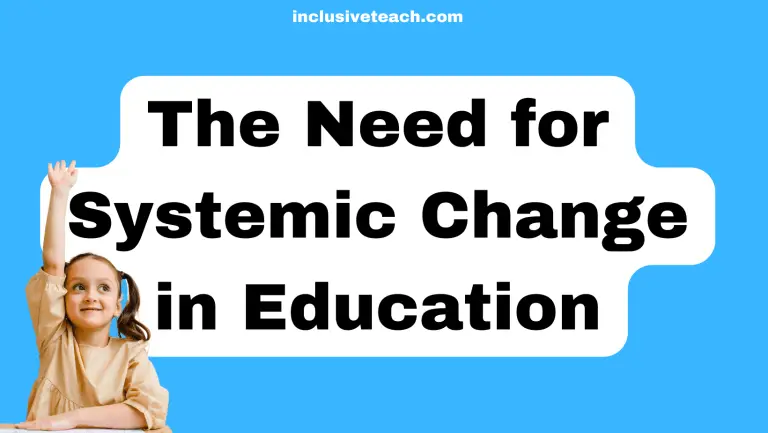
One Comment